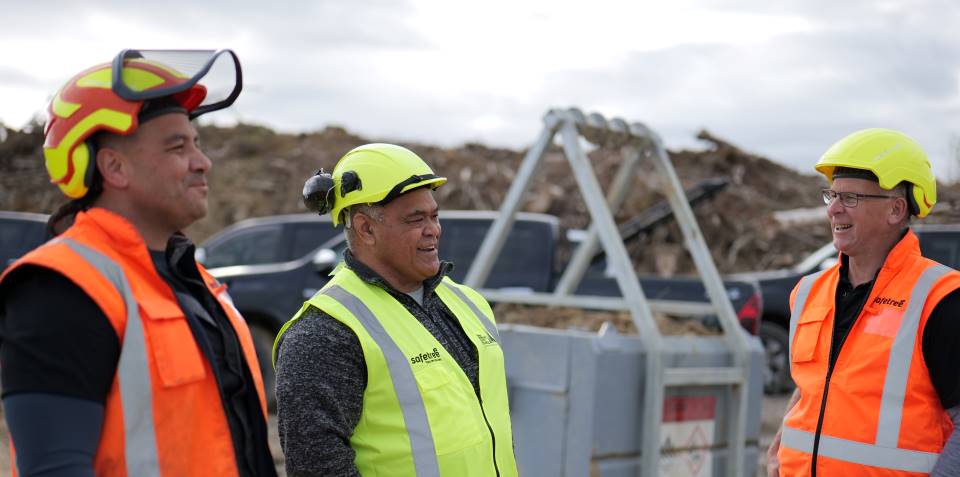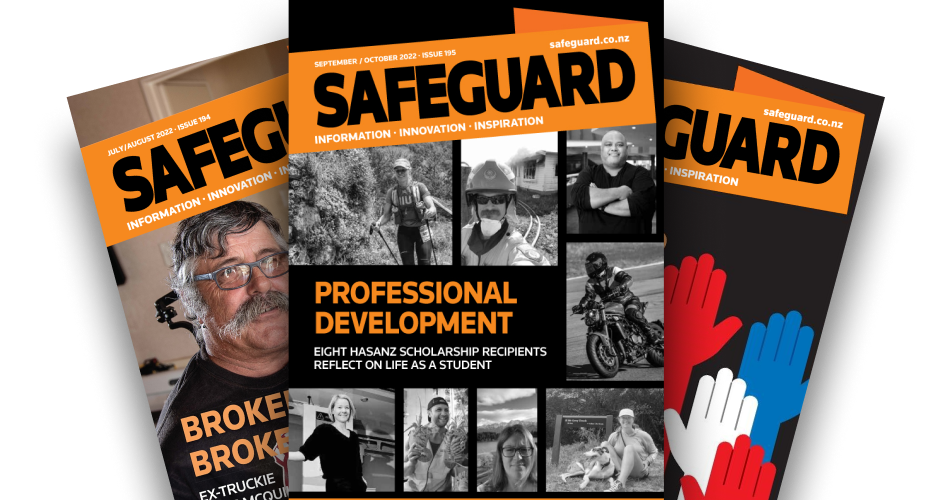How did you get involved in workplace health & safety?
After starting off in forestry, then teacher training, I engaged in some post-graduate study that eventually led me into a career in human resources. In these HR roles – in industries including manufacturing, timber processing, oil & gas – I often had responsibility for health and safety. I’ve not had a pure career pathway in health and safety but have always been passionate about building strong organisational cultures. I believe this can be catalysed by building strong H&S cultures first.
What place does H&S have in your current role?
Improving health & safety is the beating heart of this role and it’s the purpose that drives the Forestry Industry Safety Council (FISC).
What will be your biggest H&S-related challenge in the next 12 months?
It is, and will always be, “moving towards zero”; our aspiration is to prevent serious harm and fatalities in the forestry sector.
In your current role, what has been your most satisfying H&S-related achievement?
I’ve only been in the role for a few months so nothing in the major achievement column yet, but I am pleased to build on the established forestry H&S network and to be greeted by a community of like-minded and passionate H&S professionals. We will achieve by working together.
In your current role, what has been the hardest/most challenging thing you've had to do?
Our role at FISC is as a strong advocate for H&S and also to be a thought leader in the forestry sector. Therefore we are “influencers”. We can’t directly compel others to change. We lead with empathy and not by direct authority. I think this is both the most challenging part of the role and also the most rewarding when we can make positive changes together.
In your view, what is the most important single issue (relevant to your role) in health & safety facing New Zealand?
We are going through massive change in the world, whether that be geo-political, economic or climatic. Things can seem out of our control and this affects our everyday life. It’s easy to feel fatigued and helpless, and this can influence our approach to work and health and safety too. Being passive or disengaged can lead to a fatalistic mindset where we accept what happens to us and don’t recognise our ability to engage and make positive change.
How best to address this issue?
Use your voice, engage and choose to be proactive.
Tell us something about yourself that might surprise readers.
I once worked in sports management and as part of my role I initiated the first ever North Harbour Rest Homes Games. We had about 100 participants from surrounding rest homes involved in modified sports. The sight of a 100-year-old man raising his arms in triumph having just won a medal was an uplifting moment that I will always recall with fondness. The thrill of success does not diminish with advancing years.
What is the riskiest thing you've done that you're willing to confess to?
Transporting a very long plank on a motorbike with my mate John Douglas to build a foot bridge in the Tihoi bush. It was a quiet forestry road and we must have looked like a low-flying plane making our way down the road – fortunately no vehicles were encountered.




